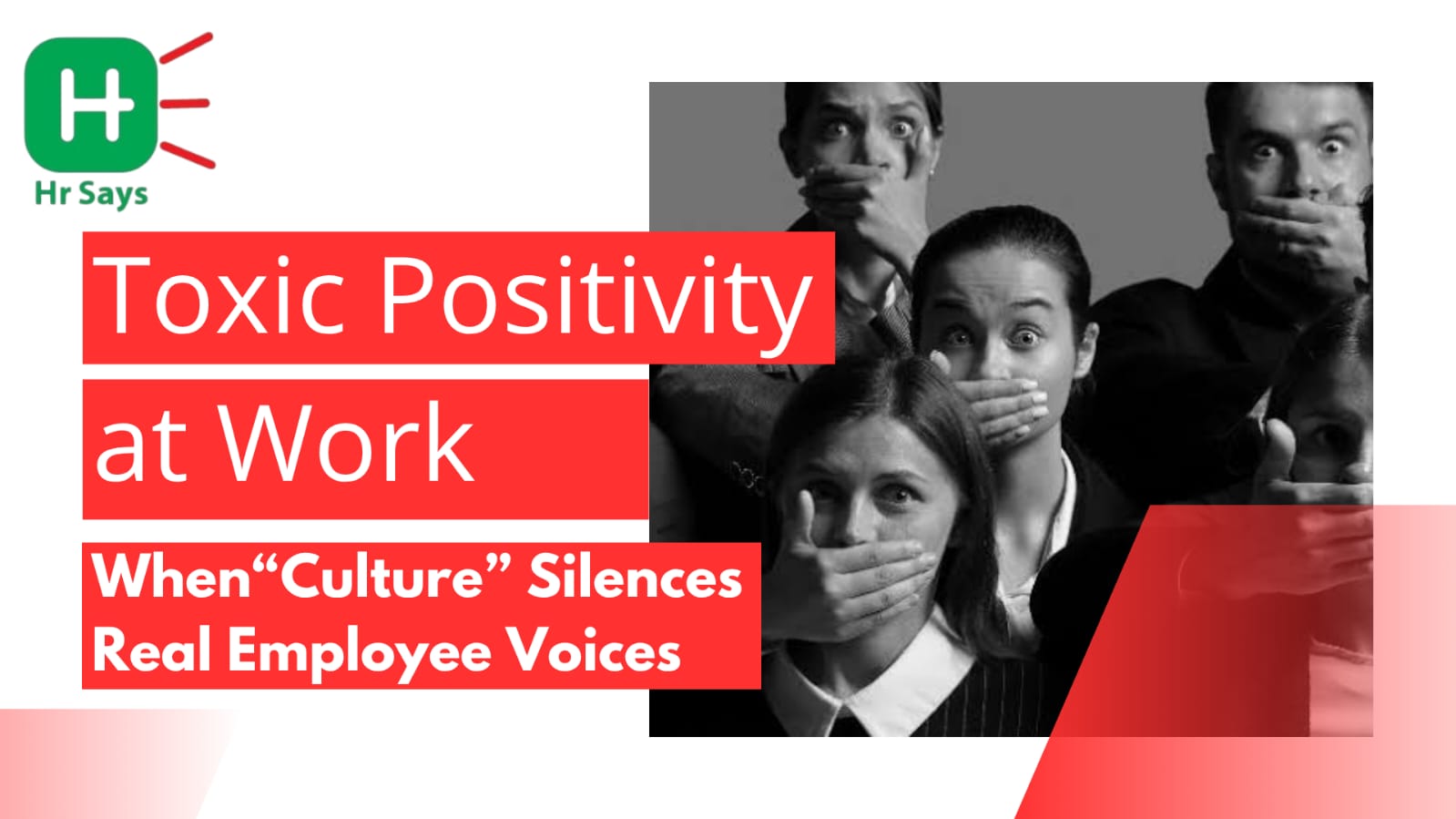What if being “positive” at work feels like pressure, not peace?
Every meeting ends with a cheer. Feedback is wrapped in sparkles. No room for frustration, stress, or honest concern. This is not a healthy culture. This is toxic positivity.
The Mask of Forced Happiness
Toxic positivity is subtle. It doesn’t look harmful on the surface. In fact, it’s often praised. But it sends a loud message—only good vibes allowed.
● “Don’t bring negativity to the team.”
● “Let’s focus on the bright side.”
● “Others have it worse. Be grateful.”
These sound harmless. Even motivational. But over time, they become rules. Rules that silence discomfort. Rules that mute real voices.
The Pressure to Smile
In many workplaces, staying cheerful becomes a job in itself. A bad day isn’t just ignored—it’s corrected. Tears are hidden. Anger is reworded. Honest criticism is seen as disruption.
Employees feel it. But they don’t say it. Because being “negative” means being difficult. So, problems stay hidden. And people start to disconnect.
The burnout continues. But everyone still smiles in the team photo.
When Culture Crosses the Line
Workplace culture matters. It builds connection. Shared values. Trust. But when culture becomes a script, it loses its truth.
Toxic positivity happens when:
● Struggles are seen as weakness
● Emotional honesty is discouraged
● Challenges are sugarcoated
● Empathy is replaced with slogans
● Team feedback is filtered to “protect morale”
This isn’t culture. It’s control in disguise.
Why It Backfires
Silenced employees stop caring. They don’t challenge ideas. They don’t innovate. They don't
speak up—until they leave.
Leaders think morale is high. But it’s not. It’s just quiet.
Work becomes performative. People become guarded. And the “happy culture” starts to crack.
Shifting Toward Real Positivity
Not all positivity is toxic. Encouragement matters. So does gratitude. But space must exist for
pain, doubt, and discomfort.
A healthier culture:
● Listens to all emotions, not just the good ones
● Encourages respectful disagreement
● Normalizes hard days
● Allows leaders to be vulnerable
● Values honesty over surface smiles
Real connection starts with truth.
Conclusion
Toxic positivity is rarely intentional. It sneaks in with good intentions—but dangerous consequences. True culture isn’t about constant cheer. It’s about making room for the whole human.
And sometimes, that means letting the smile drop—for just a moment.

 Not all smiles at work are genuine. A culture obsessed with staying upbeat can quietly shut down real conversations. This piece explores how over-optimism, when forced, may harm more than help.
Not all smiles at work are genuine. A culture obsessed with staying upbeat can quietly shut down real conversations. This piece explores how over-optimism, when forced, may harm more than help.








.jpeg)
.jpeg)

.jpeg)





.jpeg)



.jpeg)

.jpeg)



